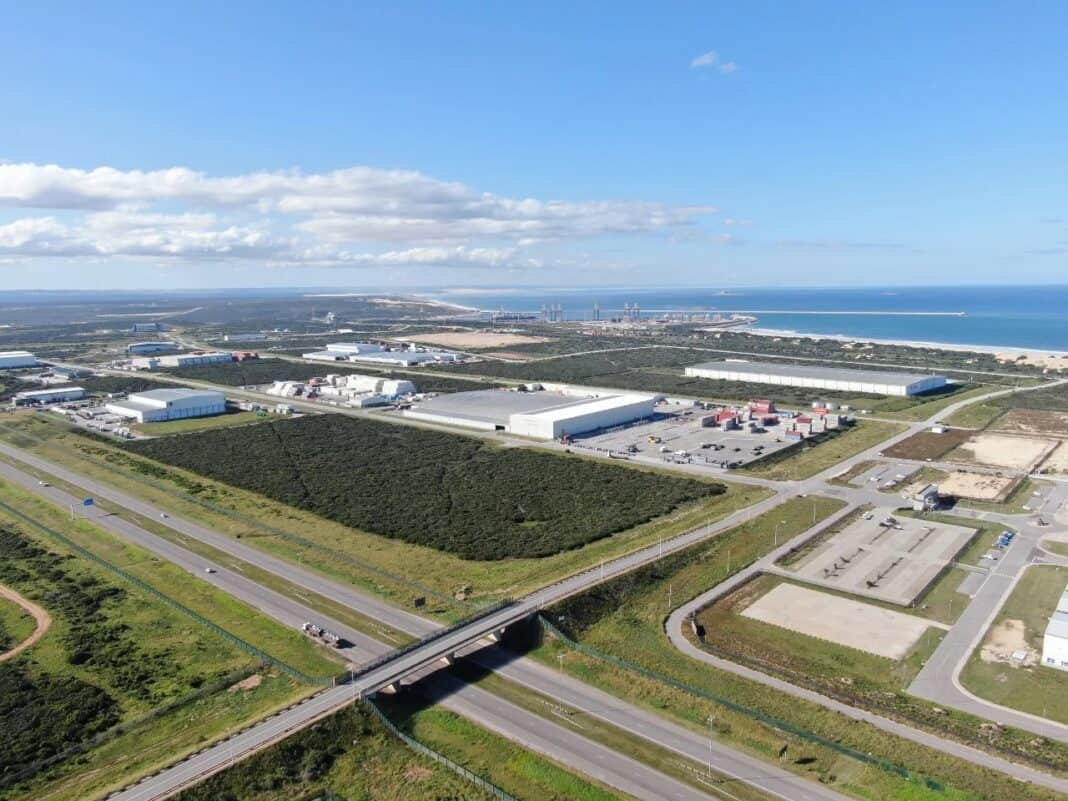Special Economic Zones (SEZs) play a vital role in driving South Africa’s economic growth by fostering industrialization, promoting exports, and attracting foreign direct investment (FDI).
These zones offer tax incentives, reduced regulatory barriers, and world-class infrastructure to encourage businesses to establish operations. Here’s an in-depth exploration of the top SEZs in South Africa.
1. Coega SEZ
Location: Eastern Cape
Established: 1999
Key Industries: Automotive, energy, agro-processing, logistics
The Coega SEZ, located near the Port of Ngqura, is one of the largest and most successful SEZs in South Africa. It hosts a wide range of industries, including automotive manufacturing (e.g., vehicles and components), renewable energy projects, and agro-processing. The zone has advanced logistics infrastructure and access to global markets through its proximity to a deep-water port.
Key Achievements:
- Over $1 billion in FDI attracted since inception
- Creation of over 120,000 direct and indirect jobs
- Home to global investors like FAW (automotive) and DCD Wind Towers
2. Dube TradePort SEZ
Location: KwaZulu-Natal
Established: 2012
Key Industries: Aerospace, logistics, agriculture, electronics
Adjacent to the King Shaka International Airport, the Dube TradePort SEZ is a hub for air logistics and export-oriented agriculture. It also focuses on advanced manufacturing and IT-related businesses. The zone is renowned for its Agrizone, which produces high-value crops in controlled environments for both local and international markets.
Key Achievements:
- One of the top 10 investment-friendly SEZs globally
- Major logistics center for pharmaceutical distribution in Africa
- Significant contributions to KwaZulu-Natal’s GDP
3. East London Industrial Development Zone (ELIDZ)
Location: Eastern Cape
Established: 2003
Key Industries: Automotive, electronics, ICT, agro-processing
The ELIDZ specializes in manufacturing and exports, particularly for the automotive industry. Its location near the Port of East London ensures seamless integration into global supply chains. The zone provides purpose-built factories and customized support services for investors.
Key Achievements:
- Hosts major automotive players like Mercedes-Benz South Africa
- Significant growth in electronics manufacturing exports
- Strong support for small and medium-sized enterprises (SMEs)
4. Richards Bay Industrial Development Zone (RBIDZ)
Location: KwaZulu-Natal
Established: 2002
Key Industries: Metals beneficiation, energy, marine engineering
Strategically located near the Richards Bay Port, RBIDZ focuses on heavy industries such as metal processing and energy projects. The zone benefits from access to one of the largest deep-water ports in Africa, enabling efficient import and export operations.
Key Achievements:
- Home to several energy and metallurgical projects
- Expansion of infrastructure to attract larger investments
- Partnership with green energy companies for sustainable development
5. Saldanha Bay Industrial Development Zone (SBIDZ)
Location: Western Cape
Established: 2013
Key Industries: Oil and gas, marine engineering, logistics
The SBIDZ is South Africa’s first SEZ dedicated to the maritime and oil & gas industries. Positioned near the Saldanha Bay Port, it serves as a regional hub for offshore oil and gas exploration, production, and marine engineering.
Key Achievements:
- Attracted investments from global oilfield service companies
- Offers state-of-the-art facilities for vessel repair and maintenance
- Supported by international energy companies for regional projects
6. OR Tambo SEZ
Location: Gauteng
Established: 2010
Key Industries: Aerospace, electronics, pharmaceuticals
Located near OR Tambo International Airport, this SEZ is a key hub for high-tech manufacturing and logistics. It focuses on light manufacturing, including electronics and pharmaceuticals, leveraging the airport’s connectivity for export markets.
Key Achievements:
- Establishment of state-of-the-art manufacturing facilities
- Major pharmaceutical exports to global markets
- High emphasis on skill development and employment
7. Maluti-A-Phofung SEZ
Location: Free State
Established: 2016
Key Industries: Agro-processing, logistics, manufacturing
Situated along the strategic N3 corridor, the Maluti-A-Phofung SEZ focuses on logistics and agro-processing. It is positioned as a hub for trade between Gauteng, Durban, and neighboring countries like Lesotho.
Key Achievements:
- Growth in regional trade connectivity
- Development of infrastructure to support SME growth
- Promotion of sustainable agricultural practices
8. Mkuze SEZ
Location: KwaZulu-Natal
Established: Planned
Key Industries: Agro-processing, forestry, logistics
Although still in development, the Mkuze SEZ has been identified as a future agro-processing and logistics hub. Its location in northern KwaZulu-Natal provides access to underutilized agricultural resources, enhancing food security and rural development.
Anticipated Benefits:
- Boost to rural employment opportunities
- Attraction of investment in forestry and wood products
- Strengthening of the agricultural value chain
Benefits of SEZs in South Africa
- Tax Incentives: Reduced corporate income tax rates and customs duty rebates.
- Infrastructure: World-class facilities and streamlined logistics networks.
- Regulatory Support: Simplified procedures for investment approvals and permits.
- Employment Creation: Thousands of jobs for local communities.
Challenges
Despite their success, South Africa’s SEZs face challenges such as:
- Bureaucratic hurdles
- Power supply issues
- Balancing economic growth with environmental sustainability
Conclusion
Special Economic Zones have become pillars of South Africa’s industrial strategy, driving economic diversification, creating jobs, and boosting exports. As the government continues to invest in infrastructure and incentives, SEZs are poised to play an even greater role in South Africa’s economic future.
Also Read
Economism unveiled: How it shapes global policies and everyday life
XTX Topco Ltd boosts stake in Coinbase: What it means for the cryptocurrency landscape
